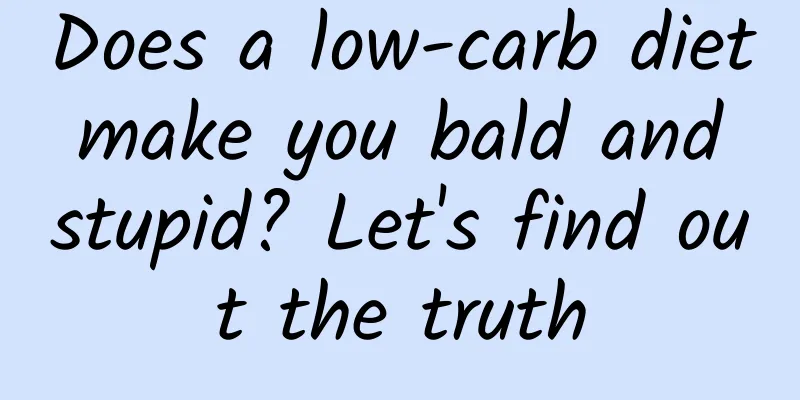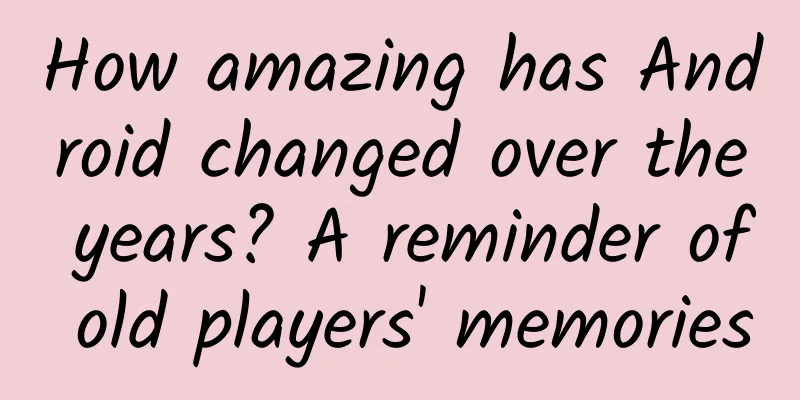Does a low-carb diet make you bald and stupid? Let's find out the truth

|
Speaking of carbohydrates, everyone should be familiar with them. Many people like to say "eating less rice means reducing carbohydrates" when they want to lose weight. So, are the sayings such as "reducing carbohydrate intake can help you lose weight", "long-term low-carb diet will cause baldness", and "low-carb diet will make your brain stupid" true or false? Let's uncover the truth today! Image source: Copyright Library 01 Myth: Carbohydrates are only grains Analysis: Wrong! Carbohydrates are not limited to grains. Beans, nuts, fruits, vegetables, etc. all contain carbohydrates. Carbohydrates are a large family. According to the molecular size of carbohydrates, they can be divided into two categories: simple carbohydrates (monosaccharides and disaccharides) and complex carbohydrates (oligosaccharides and polysaccharides). Simple carbohydrates (such as fructose, sucrose, etc.) are widely present in various sugary drinks, fruit juices, honey and added sugar in foods, and are an important source of sugar for people in their daily life. Complex carbohydrates include starch, dietary fiber, etc. Among them, starch is the main component of staple food in people's daily diet. Dietary fiber is mainly provided by coarse grains and plant foods, such as cereals, beans, nuts, fruits, vegetables, etc. According to the "Dietary Guidelines for Chinese Residents", whole grains and bean products should be eaten regularly. The total recommended amount of cereals and potatoes is 250-400 grams, which can be divided into 50-100 grams of potatoes and 200-300 grams of cereals, of which whole grains and beans are 50-150 grams. It is recommended to diversify the combination of coarse and fine grains. 02 Myth: Long-term low-carb diet can cause baldness Analysis: Inaccurate. Long-term low-carb diets may cause acute telogen effluvium, but hair volume will gradually recover after a normal diet. Telogen effluvium refers to the situation where a person suffers some kind of physical or emotional trauma, experiences great stress, and experiences a large change in weight in a short period of time, causing many hairs that were originally in the growth phase or regression phase to enter the resting phase prematurely, resulting in a large amount of hair loss. Telogen effluvium usually does not appear immediately after being stimulated, but a large amount of hair loss will occur 2 to 3 months later. This type of hair loss is generally temporary. As long as the source of stimulation disappears, the hair loss will gradually stop and the hair volume will gradually recover. No special treatment is required. If you experience obvious hair loss, think back two to three months ago to see if you experienced any mental stress or changes in physical condition. Image source: Copyright Library 03 Rumor: Long-term low-carb diet will make your brain "stupid" Analysis: Correct. If carbohydrate intake is seriously insufficient, the brain will experience various negative states, leading to emotional instability and memory loss. The "sugar" after carbohydrates are broken down is the only nutrient that keeps the brain running. Glucose is the only energy source for the brain. If the sugar supply is insufficient, the brain will feel tired, dizzy, insomnia, and irritability. If carbohydrate intake is severely insufficient due to weight loss or other reasons, it will lead to insufficient energy supply to the brain, causing "stupidity" symptoms such as forgetfulness and slow reaction. 04 Myth: Low-carb diets can help you lose weight Analysis: It is possible under certain conditions, but the side effects are obvious. The "Guidelines for Medical Nutritional Treatment of Overweight/Obesity in China (2021)" states that low-carbohydrate diets (LCDs) generally refer to a type of diet in which the carbohydrate energy supply ratio in the diet is ≤40%, the fat energy supply ratio is ≥30%, the protein intake is relatively increased, and the total energy intake is restricted or not restricted. Short-term low-carbohydrate dietary intervention can be used to control weight and improve metabolism. However, it is mostly used for short- and medium-term weight control, and its long-term safety and effectiveness still need further study. In particular, the extremely low-carb diet, represented by the ketogenic diet, was originally used to control epileptic seizures, and later became widely spread as a popular weight loss method. This method can significantly reduce weight in the short term, but many studies have found that its long-term effect is no better than other weight loss diets, and it has obvious side effects. Therefore, it is not recommended that you blindly adopt an extremely low-carb diet to lose weight, let alone adopt this method for a long time. Carbohydrates, proteins and fats are collectively known as the three major nutrients. In a normal diet, these three nutrients must be properly matched and balanced to achieve the best energy supply. The key to losing weight is to consume less than your metabolism. Only long-term excessive intake of carbohydrates will make people fat. Controlling your diet and exercising are still the basic means to lose weight. Image source: Copyright Library 05 Myth: A low-carb diet means not eating carbs Analysis: Wrong. A low-carb diet means eating less refined carbohydrates and processed foods containing a lot of added sugar, not eliminating carbohydrates. Natural, fiber-rich carbohydrates are healthy, while carbohydrates without fiber are the opposite. Carbohydrates are not our "enemy". Instead of viewing carbohydrates as "good" or "bad", it is better to focus on increasing overall and diverse carbohydrate choices, eating less refined carbohydrates and processed foods containing a lot of added sugar, and eating more natural foods rich in fiber. Dietary fiber can keep you full for a long time, help healthy digestion, and help you lose weight. If you want to lose weight by following a "low-carb diet" even though your diet is reasonable, it may only backfire. Simply following a low-carb diet is not advisable, especially a long-term low-carb diet, which can cause many diseases in the body. Such as malnutrition, depression, memory loss, endocrine disorders, liver and kidney damage, hair loss, irregular menstruation, and even amenorrhea. It should also be noted that the longest time for losing weight through a low-carb diet should not exceed 3 months, and it must be done under the guidance of a professional doctor. in conclusion A low-carb diet means eating less refined carbohydrates and processed foods containing large amounts of added sugar, not eliminating carbohydrates. A long-term low-carb diet may lead to acute telogen effluvium, but this type of hair loss is generally temporary. A long-term low-carb diet can cause the brain to feel tired, dizzy, insomnia, and irritable, leading to memory loss. A low-carb diet is mostly used for short- and medium-term weight control, and its long-term safety and effectiveness still need further study. Author: Hu Zhongdong, deputy chief physician, registered nutritionist, health manager, Healthy China Action speaker Review | Zhong Kai, Director of Kexin Food and Health Information Exchange Center The article is produced by "Science Refutes Facts" (ID: Science_Facts). Please indicate the source when reprinting. The cover image and images within this article are from the copyright gallery. Reprinting and quoting them may lead to copyright disputes. |
>>: How to keep her energy job? She looks for oil in shale cracks
Recommend
Tutorial on using TensorFlow on iOS (Part 1)
Before using deep learning networks for predictiv...
There is no dry goods, just my personal experience in operation for more than 2 years.
It’s about operations and growth. Time flies, and...
More than 1,600 scientists participated, and only 4% believed that AI tools are currently "necessary"
Over the past decade, the number of research pape...
Foshan sleep mini program function, how much does it cost to develop a sleep monitoring mini program?
Nowadays, due to increasing stress on people, the ...
5 "pitfalls" to avoid in marketing activities
As the old saying goes, "Failure is the moth...
Introduction to Dong Zhongshu: How to increase the amount of external links?
How to post external links to increase the entry ...
Be determined not to be a “lone swimmer”, please remember this knowledge!
The weather is hot in summer How to avoid drownin...
The last line of defense! Five steps to improve UI interaction acceptance efficiency
Details determine success or failure. This time, ...
Understand the central bank’s reserve requirement cut in 30 seconds!
Mixed Knowledge Specially designed to cure confus...
Do soy products increase uric acid? Can soda water lower uric acid? What you know may not be the truth!
Author: Wang Hailong, Chief Physician, Dongzhimen...
Guan Lixin's "Extraordinary Profits" creates a profit triangle system
Guan Lixin's "Extraordinary Profits"...
LeEco Zhixin President Liang Jun: We will work with TCL to create TV games
On December 14, the rumored cooperation between L...
6 marketing strategies that work well on the Internet and in physical stores, with 18 real cases included!
Without further ado, let’s get straight to the po...
How to teach your girlfriend programming?
[[146883]] Ever since I started as a software dev...









